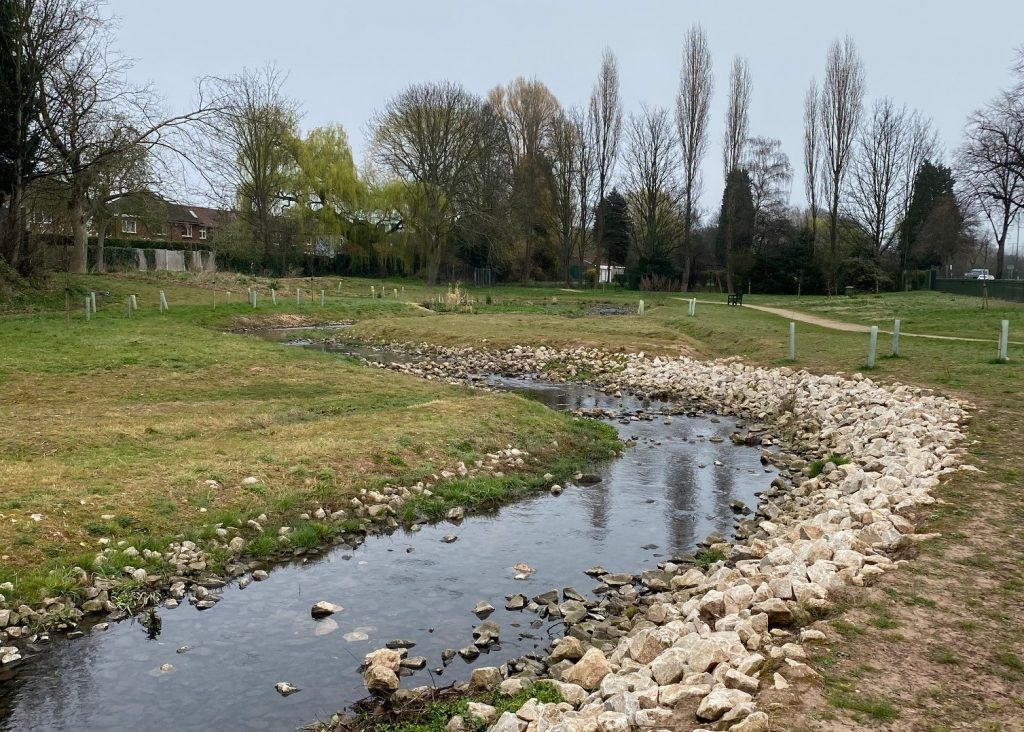Nottingham has cemented its commitment to becoming a carbon neutral city by 2028 and creating climate resilience in the city by joining the global Race to Resilience. This worldwide campaign aims to help communities adapt to the accelerating impacts of climate change. By delivering action in over 100 countries, the Race to Resilience partners have pledged to make 4 billion people worldwide more resilient by 2030.
The city is already feeling the effects of a warmer world, with increased flooding and heatwaves over the past decade. In the future, these events are expected to become more frequent and more extreme, along with the potential for water and food shortages, as well as a decline in nature in the city.
Frontline communities are facing increasing risks, so the council is dedicated to supporting them through the city’s ambition to become carbon neutral by 2028. The city’s Carbon Neutral Action Plan details more than 250 steps Nottingham is taking locally to combat the climate crisis, with resilience and adaptation making up one of the four key pillars of its approach.
By improving resilience, the City Council is committing to helping citizens and organisations to anticipate, withstand and recover from the effects of a climate related event.
Nottingham City Council is already making good progress in this area and has recently completed a scheme to improve resilience to river flooding in Nottingham. Focusing on Jubilee Ponds, Valley Road Park and Jason Spencer Sports Ground, existing ponds were upgraded to store more water and the Day Brook was returned to a more natural state to slow the flow of water. This scheme has improved the habitat for wildlife, created new paths to improve public access and 160 homes are now better protected from the risk of flooding.

The City Council has also seen success in the delivery of sustainable drainage systems (SuDS). These systems are used to manage surface water by providing natural ways to capture rainfall causing floods. Nottingham City Council is currently working with Severn Trent Water to deliver SuDS projects, including at Quorn Grove and Haydn Road.
Councillor Sally Longford, Portfolio Holder for Energy, Environment and Waste Services, said: “By joining the Race to Resilience, we’re contributing to a global effort to take action to adapt to the inevitable climate risks. The climate crisis will have the biggest impact on the most vulnerable people in Nottingham, so we are supporting them to become more resilient in the face of these changes.
“Through our work implementing the Carbon Neutral Action Plan, I’m pleased to see the progress we’re making to reduce risks of flooding, to cope with extreme weather events and to empower citizens to adapt to the changing climate. We all need to do our bit to fight the climate crisis and help make our homes and lives safe for ourselves and for future generations – I encourage everyone in the city to make changes where you can, no matter how small the contribution.”
Wayne Bexton, Director of Carbon Reduction, Energy and Sustainability, said: “We are delighted to be part of the international Race to Resilience campaign, acknowledging that it requires global action to prevent the most devastating impacts of climate change. Our Carbon Neutral Charter and Action Plan highlight what we are doing here in Nottingham, and we look forward to sharing, collaborating and learning with other cities and organisations as part of this movement.”
If you want to help the city become carbon neutral, sign up for the county-wide Green Rewards app, which gives you opportunities to win prizes every month for taking sustainable actions. You can find out more about Nottingham’s progress towards carbon neutrality by signing up for the CN28 newsletter and following the team on Twitter and Facebook.
